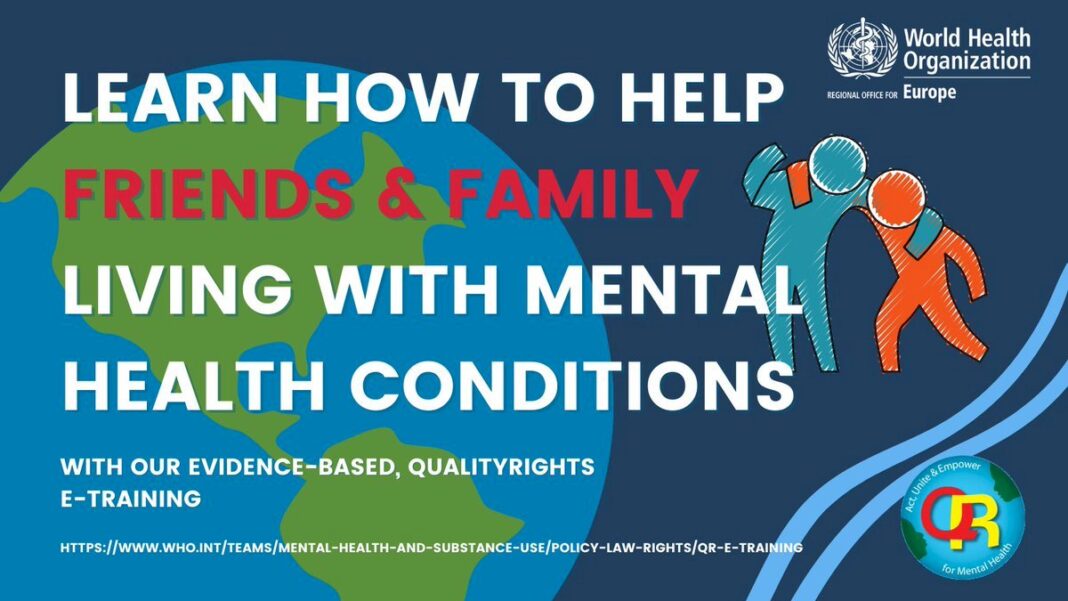Michelle Bachelet, UN High Commissioner for Human Rights delivered a statement for the launch of an unheard “Quality Rights” e-training that will help, among other things, put an end to systemic abuses in psychiatry and mental health.
Michelle Bachelet:
Greetings to all. Thank you to the World Health Organization for inviting UN Human Rights to take part in the launch and rollout of this vital e-training. It is an honour to participate.
Today’s launch of the Quality Rights e-training is timely, and its focus on mental health, recovery and community inclusion could not be more crucial.
As we are all aware, the COVID-19 pandemic has demonstrated the devastating social impacts of global health crises. The years of neglect and underinvestment in mental health has been heavily exposed, as has the longstanding stigma of mental health conditions and discrimination against people with psychosocial disabilities.
Their human rights are continuously under threat.
We urgently need a paradigm shift. My Office’s recent report on mental health and human rights highlighted that people with mental health conditions and with psychosocial disabilities face all kinds of discrimination. They are often denied legal capacity on the basis of their disability, forcibly admitted to institutional settings, and coerced into treatment.
This is happening because of outdated laws, policies and practices.
Restoring the dignity and rights of people with mental health conditions and with psychosocial disabilities needs to be our priority. We need to discontinue the use of discriminatory laws and practices and advance towards approaches with equality and non-discrimination at their core. Such approaches must conform with international human rights standards as set out in the Convention on the Rights of Persons with Disabilities.
The Quality Rights e-training will play an essential role in transforming attitudes and practices in mental health. It will provide vital support to countries in their implementation of a rights-based and recovery-oriented approach to mental health services.
I am particularly pleased that the e-training is being integrated and delivered in the context of the Special Initiative for Mental Health. Dr Tedros, I commend you for your vision in creating and accelerating the implementation of this initiative and WHO’s commitment to keep mental health high on the human rights, sustainable development and humanitarian agendas.
My Office is committed to continue our collaboration and to support this excellent initiative. I will be inviting all staff to undertake the training, and – through our web and social media channels as well as at high-level events – to actively disseminate it to relevant audiences throughout the world.
As we recover from the pandemic, we have a crucial opportunity to find the path towards better, more inclusive, sustainable societies. Tools such as this can help us take the steps on that path.
Thank you.
RELATED
PRESS RELEASESThe world must change the way mental health challenges are addressed, UN expert says









